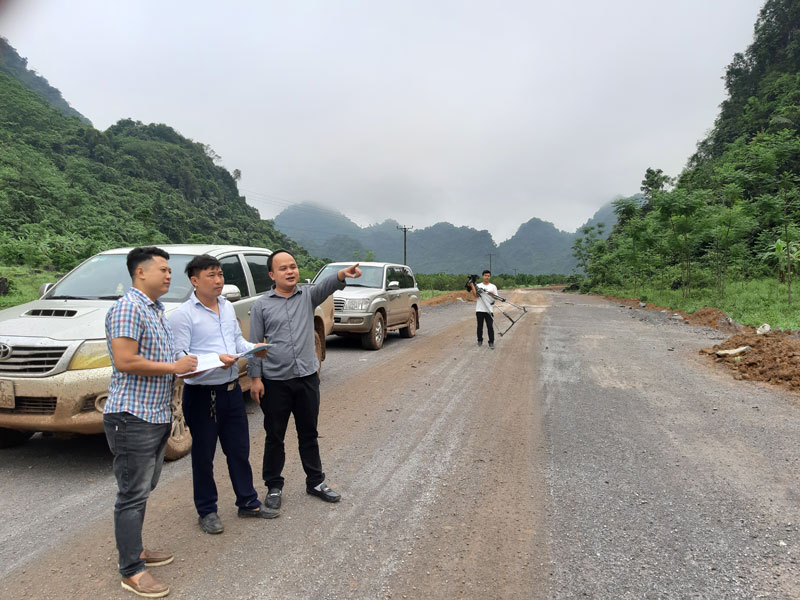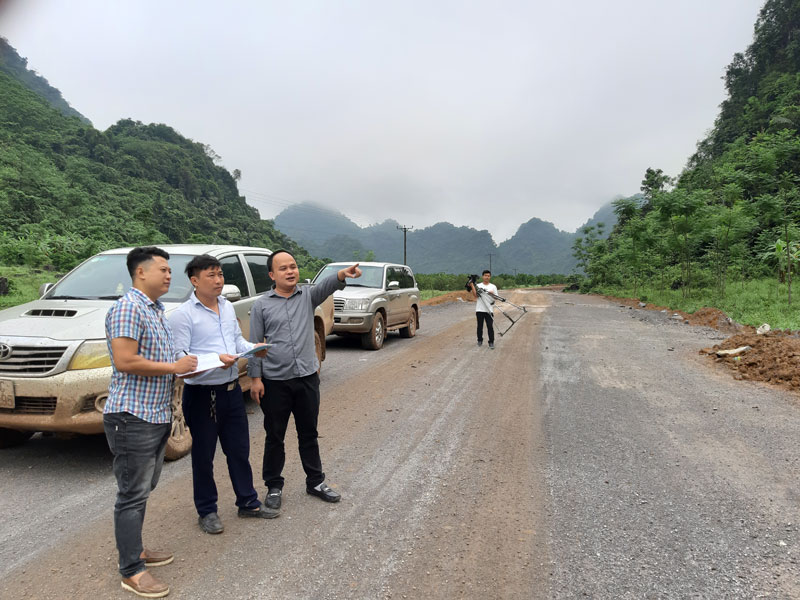
(HBO) - According to results released by the Vietnam Chamber of Commerce and Industry, in 2018, Hoa Binh province gained 61.73 points in the Provincial Competitiveness Index (PCI), up 4.93 points from 2016 and 2.31 points from 2017, and ranking 48 out of the 63 provinces and cities across the country.
 The Hoa Binh Knitting JSC, based in the Da
River Left Bank Industrial Park in Hoa Binh city, has operated fruitfully and
created jobs for 400 people.
The Hoa Binh Knitting JSC, based in the Da
River Left Bank Industrial Park in Hoa Binh city, has operated fruitfully and
created jobs for 400 people.
Among the 500 businesses of Hoa Binh chosen for
the PCI survey, 157 or 31.4 percent of them replied, including 32 firms
established in 2017 and 2018.
Sub-indexes showed that the province’s PCI last
year increased in both the score (up 2.31 points) and the ranking (up 4 places)
from 2017. As much as 71 percent of private businesses said the provincial
administration was flexible and creative in making initiatives to develop the
private economic sector; and 54 percent said the provincial People’s Committee
was very dynamic and creative in solving new problems. Meanwhile, 65 percent of
the interviewees said difficulties and obstacles were addressed in a timely
manner through dialogues and meetings with businesses (compared to the
nationwide average of 68 percent); 81 percent said they were satisfied with the
administration’s response to and settlement of problems they pointed out
(compared to the nationwide average of 77 percent).
These results reflect Hoa Binh’s efforts to
improve the local business environment over the past years. In 2018, the
provincial administration carried out many concrete solutions to improve its
governance quality and support enterprises and investors in clearing
administrative procedures and carry out investment activities.
In particular, the provincial Party Committee
has assigned local officials to direct the acceleration of key projects. The
provincial People’s Committee has seriously implemented the business climate
and PCI improvement plan, and tasked agencies with improving the sub-indexes
within their remit. The two committees have also organised regular dialogues
and meetings with businesses to solve difficulties and obstacles. Hoa Binh has
also paid attention to investment promotion and image popularization
activities.
According to data from the Hoa Binh Provincial Party Committee, the industrial production index for the first six months of 2025 is estimated to have increased by 20% compared to the same period last year. This marks the highest year-on-year growth rate for this period since 2020.
In the first six months of 2025, Hoa Binh province’s export turnover was estimated at 1.145 billion USD, marking an 18.11% increase compared to the same period in 2024. Import turnover was estimated at $ 804 million, a 17.15% increase, which helped the province maintain a positive trade balance.
The lives of the ethnic minority farmers in Tan Lac district have gradually improved thanks to the new directions in agricultural production. This is a testament to the collective strength fostered through the professional associations and groups implemented by various levels of the district’s Farmers’ Union.
With the motto the "product quality comes first,” after nearly one year of establishment and operation, Muong village’s Clean Food Agricultural and Commercial Cooperative, located in Cau Hamlet, Hung Son Commune (Kim Boi district), has launched reputable, high-quality agricultural products to the market that are well-received by consumers. The products such as Muong village’s pork sausage, salt-cured chicken, and salt-cured pork hocks have gradually carved out a place in the market and they are on the path to obtaining the OCOP certification.
In the past, the phrase "bumper harvest, rock-bottom prices" was a familiar refrain for Vietnamese farmers engaged in fragmented, small-scale agriculture. But today, a new spirit is emerging across rural areas of Hoa Binh province - one of collaboration, organisation, and collective economic models that provide a stable foundation for production.
Maintaining growing area codes and packing facility codes in accordance with regulations is a mandatory requirement for agricultural products to be eligible for export. Recently, the Department of Agriculture and Environment of Hoa Binh province has intensified technical supervision of designated farming areas and packing facilities to safeguard the "green passport" that enables its products to access international markets.



 The Hoa Binh Knitting JSC, based in the Da
River Left Bank Industrial Park in Hoa Binh city, has operated fruitfully and
created jobs for 400 people.
The Hoa Binh Knitting JSC, based in the Da
River Left Bank Industrial Park in Hoa Binh city, has operated fruitfully and
created jobs for 400 people.